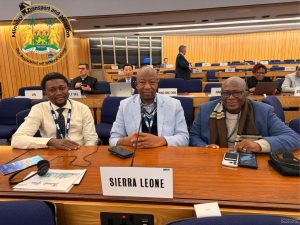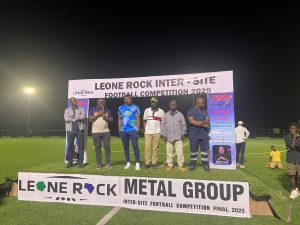From Village Pathways to University Hallways The Unseen Potential of Disability

It was a cool afternoon in Dortmund, Germany, and as I wandered through the university campus, the crisp air invigorated my senses. Amidst the academic bustle, I spotted a man gliding effortlessly in a sleek, comfortable wheelchair. His presence was striking, not just because of the modernity of his chair but because of the ease with which he seemed to navigate his surroundings. He was whistling a cheerful tune, a melody so light and upbeat that it was almost impossible not to hum along. His face exuded tranquility, and his eyes sparkled with an inner light that suggested a contentment unaffected by the outside world. Observing him brought a warm, soothing feeling, but it also stirred deep memories from my past—memories of my village, Warima.
In a heartbeat, I was transported back to that dusty path that connected Magbla and Warima. I vividly recalled Amadu, a figure etched in my childhood memories. He was a man with a twisted body, crippled and worn from years of hardship. Despite his condition, Amadu was known for his sharp wit and profound knowledge. Yet, he was largely invisible in our community, his brilliance overshadowed by his physical limitations. He crawled from village to village, his progress marked not by the pace of his journey but by the silent struggle he endured. His disability was a source of pity and condescension rather than respect and admiration.
Amadu never challenged the low expectations society had for him. He accepted his fate with a quiet dignity, fully aware that in his village and the surrounding areas, there were no wheelchairs or tools to assist someone like him. His lack of mobility was not merely physical but also symbolic of the societal constraints imposed upon him. His mind, rich with ideas and insights, remained largely untapped because no one was willing to see past his external appearance. In a society that valued physical prowess over intellectual contributions, Amadu’s genius remained cloaked in obscurity.
I remember feeling a pang of shame one day as Amadu struggled to keep pace with us children, who raced ahead on the road. I had wanted to help him, but my youthful understanding was limited. I failed to grasp that what he needed was not just physical assistance but also a sense of human dignity and inclusion. His struggles were emblematic of a broader societal issue where brilliance was often overlooked if it was encased in a less-than-perfect physical form.
Returning to the present, I found myself reflecting on a colleague from the University of Heidelberg, whose situation brought a sharp contrast to my memories of Amadu. This colleague, too, used a wheelchair, but his disability was far more severe. He could not lift himself and struggled with severe neck issues that affected his ability to speak. Yet, despite these significant challenges, he communicated effectively with the aid of advanced assistive technology. His resilience and determination were nothing short of inspirational.
He was a PhD student who defied the limitations imposed by his physical condition. His academic achievements were a testament to his perseverance. Despite the daily battles with his disability, he achieved his PhD and was working on his habilitation, aiming to become a professor. His story was a powerful reminder that disability does not equate to limitation and that with the right support and determination, individuals can surpass expectations and contribute significantly to their fields.
As I walked away from the man in the modern wheelchair, his cheerful tune still resonating in my ears, I couldn’t help but reflect on the broader implications of how society treats individuals like Amadu. How many brilliant minds remain hidden, their potential unrealized, because society fails to provide the necessary tools and respect? The contrast between the opportunities available to my colleague and the struggles faced by Amadu highlighted a profound inequality.
This reflection became a guiding principle for me as I continued my studies. I was determined that wherever my path led, I would remember those like Amadu—individuals whose worth was not defined by their physical limitations but by their inherent brilliance. Their stories of resilience and potential deserved to be recognized and valued, and I resolved to champion their cause, ensuring that their contributions would not go unnoticed.





